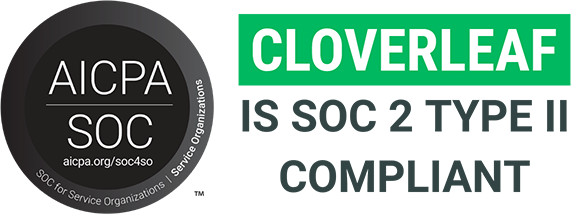How much does trust REALLY matter? Let’s do the math (Thanks Workforce Institute)
Nearly two-thirds (64%) of employees say trust has a direct impact on their sense of belonging at work.
Employees who do not feel trusted are less productive: Two-thirds (68%) say that the perception of low trust hurts their daily effort.
Those are some interesting numbers but what does that mean for YOU, a new manager, faced with managing a group of humans waiting for you to guide them? You may also be thinking that employee trust is a two-way street, and you wouldn’t be wrong. But right now, you only have 100% control over yourself, so let’s start there.
Building Trust Starts with….Relationships
Think of the person you trust most in your own life. Maybe it’s a partner, parent, or best friend. When you think of WHY you trust them, what comes to mind? You might feel that there is a lack of feeling judged, a feeling of being able to be yourself and they might even be great listeners.
While work relationships and employee engagement may be a bit different, having some of these aspects present between you and your team members can only be a good thing. This will be easy with some people. Others may make you reach for that second cup of coffee while trying really hard not to eye roll. Yes, sometimes we have to manage difficult people, people we would NEVER be friends with outside of work, and even people who utterly annoy us.
This is where you grow and build mutual respect. Where you get to shine as a leader is in how you build trusting relationships in your work environment with those that are the most difficult.
How Trust Opens Doors
We’ll get to the HOW of trust in a moment, but ultimately, trust between you and your individual team members AND within your team just makes things happen. When you establish trust it opens the door to increased productivity, quality of work outputs, and yes, an ENJOYABLE experience at work. 50 years ago people went to work to get a paycheck. Now people (rightfully so) demand that they might actually get to enjoy what they do.
When trust is present 1-1 with your team members:
You’ll be perceived as approachable and able to get ahead of problems that need to be solved ASAP.
You’ll learn more quickly how to leverage the talent of your team members for optimal performance.
You’ll keep people: If you’ve ever had to pick up the slack when a team member leaves, you know the importance of employee retention.
When trust is present AMONGST your entire team:
You might actually like going to work.
You’ll all feel like you’ve got each other’s backs. This leads to less stress and burnout when a company culture where no one is left to fend for themselves is in place.
You’ll unlock creativity and potential in each other which has a ripple effect on collaboration, and productivity while helping people do their best work.
How and WHY to Identify a Lack of Trust
You’ve just been promoted, and you sense that a member of your team is pretty stand-off-ish. In your first 1-1 with this team member they give a lot of one-word answers, don’t make much eye contact, and don’t seem too interested to let you in. We don’t always know EXACTLY what is going on so be careful not to jump to conclusions.
When you sense a lack of trust, good leaders know how to get in there and open up the difficult conversations. If trust isn’t present, you have to do the hard work and find out why. Now, this doesn’t mean going full-on “Olivia Benson SVU” and interrogating the person as if they are suspected of a crime. It does however mean an honest conversation with a few powerful, yet tactful questions:
Start with: “I want to make sure you feel comfortable coming to me with whatever you need support with.”
Followed by these options:
How do you think we can work together best?
Is there anything you need to share for us to have the most productive work relationship?
What type of support do you feel you need most from me right now?
From what they share, LISTEN before responding, and know that this may take more than one conversation.

HUMAN SKILL PROGRAMS ARE HITTING LIMITATIONS...
- Close the widening gap between learning and on-the-job application
- Overcome the tension of pausing productivity for development opportunities
- Integrate learning so it is actually in the flow of work
- The evolution of human skill development
- What Automated Coaching™ is and how it works.
How to Build Trust With Your Team
Let’s go back to what people are actually saying. In that same Workforce Institute research we shared earlier, they asked team members how their managers can earn their trust. Here are some of the top answers and some practical tips to go along with it.
Be Dependable
For people to count on you, they need to be clear and consistent. Do what you say you will, and if you CAN’T do it, communicate the change as soon as possible.
Be a calendar warrior. Include reminders for when you said you would check in with individuals or projects and don’t rely on sticky notes or your own memory.
Ask for help from YOUR boss when you need it. Don’t try to be a hero or a lone ranger. Lean into teamwork and speak up when you need support.
Actively Listen
Active listening is an art. It means NOT thinking about your to-do list, your weekend plans, or your latest Netflix series obsession while someone else is talking to you. Trustworthy leaders focus on improving their employee listening skills.
Focus on what the person is also NOT saying. Observe their behavior, emotions, and body language. What is your gut telling you to say or ask next?
Clarify and reflect back on what you hear to ensure you understand: “So what I am getting from our conversation is that you don’t have enough support from the team on this project and we might need to share ideas in a meeting to discuss this – is that accurate?”
Give Helpful Feedback
Give feedback on time, when it counts, and with an intention to contribute.
Criticism is not feedback. Constructive feedback with alternative approaches and solutions is helpful.
Don’t stop at “great job!” Express the impact that a job well done has had on the team, organization, and specific individuals as well.
Empower your team members to solicit feedback when they need it to build high levels of trust.
The key thing to remember is building trust is hard work and takes TIME. Every person you manage is bringing their entire lives into this working relationship. Every person has their own challenges with trust, and part of being a great leader is navigating the path to building trust with confidence that eventually will all work out.
About Stephanie Licata
With more than two decades of leadership and management experience, Stephanie Licata is a skilled professional coach, adult learning specialist, consultant and speaker. She has trained thousands of leaders and managers in the art and science of coaching as part of large-scale projects to develop coaching cultures within organizations. Stephanie received her professional coaching certification from New York University, and is also certified at the ACC level with the International Coaching Federation. She holds a BS in counseling and a Masters in Organizational Psychology from Columbia University.



